Clue: a pretty classic ill-suited for solo play
There are a multitude of articles on Daily Worker Placement elaborating on the joys of playing board games with those we love. However, there are times when the hankering for a game hits and you find yourself without 2-4 enthusiastic participants ready to play. This is an experience I have found myself in on more than one occasion, and so today I thought I’d delve into an unusual method of play that perhaps other game nerds share.
There are, of course, many ways to enjoy board games without the physical presence of other people, from matching up against worldwide enthusiasts on Board Game Arena, to playing board games specifically designed for solo play (like Solus Victorum), or games with an alternative solo mode, like PARKS or Castles of Mad King Ludwig. But what I’d like to examine today is the possibility of truly playing against yourself – as in, setting up the game for, say, four players, except it’s all you. Sometimes it works, sometimes it doesn’t. Let’s get into it!
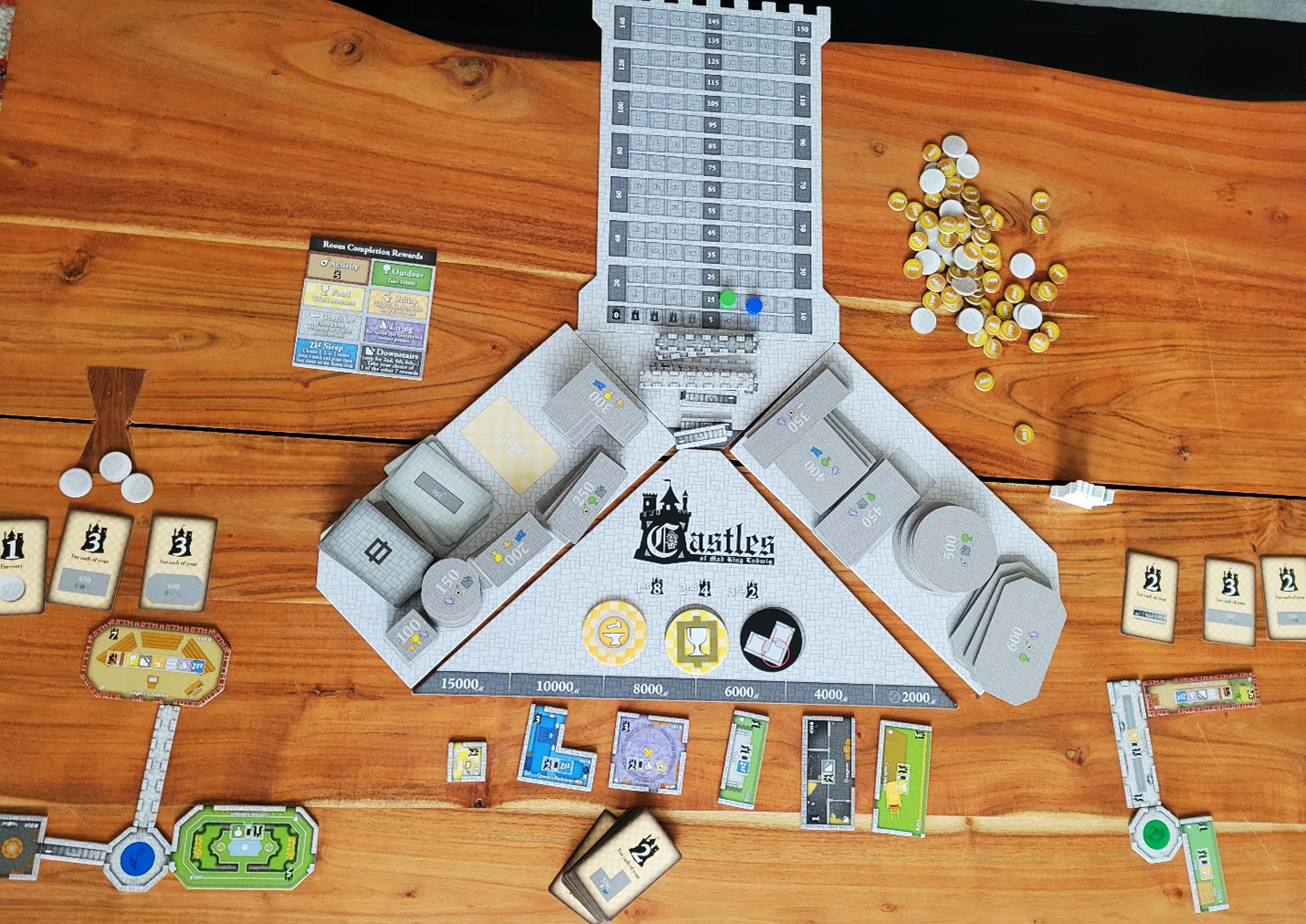
Sadly my coffee table is ~just~ too small to fit an entire playthrough of Castles
This exploration of mine started in my arrogant, erudite youth, after having watched BBC’s Sherlock for the first time. I became enamored with the imagery of the lonely genius, sharpening one’s skills by playing chess against oneself. Of course, anyone who has actually tried to do this but does not have every possible move/opening memorized, will find it nearly impossible to play any semblance of an enjoyable game. I argue this is because there really is only one way to win in chess – to put the opposite player’s king in check. It is incredibly difficult to drive a win condition in a strategy game like chess that hinges on being able to predict your next opponents’ move in order to block or hamper their progress to victory. This is what I think is the definitive line between games that work and those that don’t when attempting to play against yourself: whether there are multiple strategies available to secure a victory.
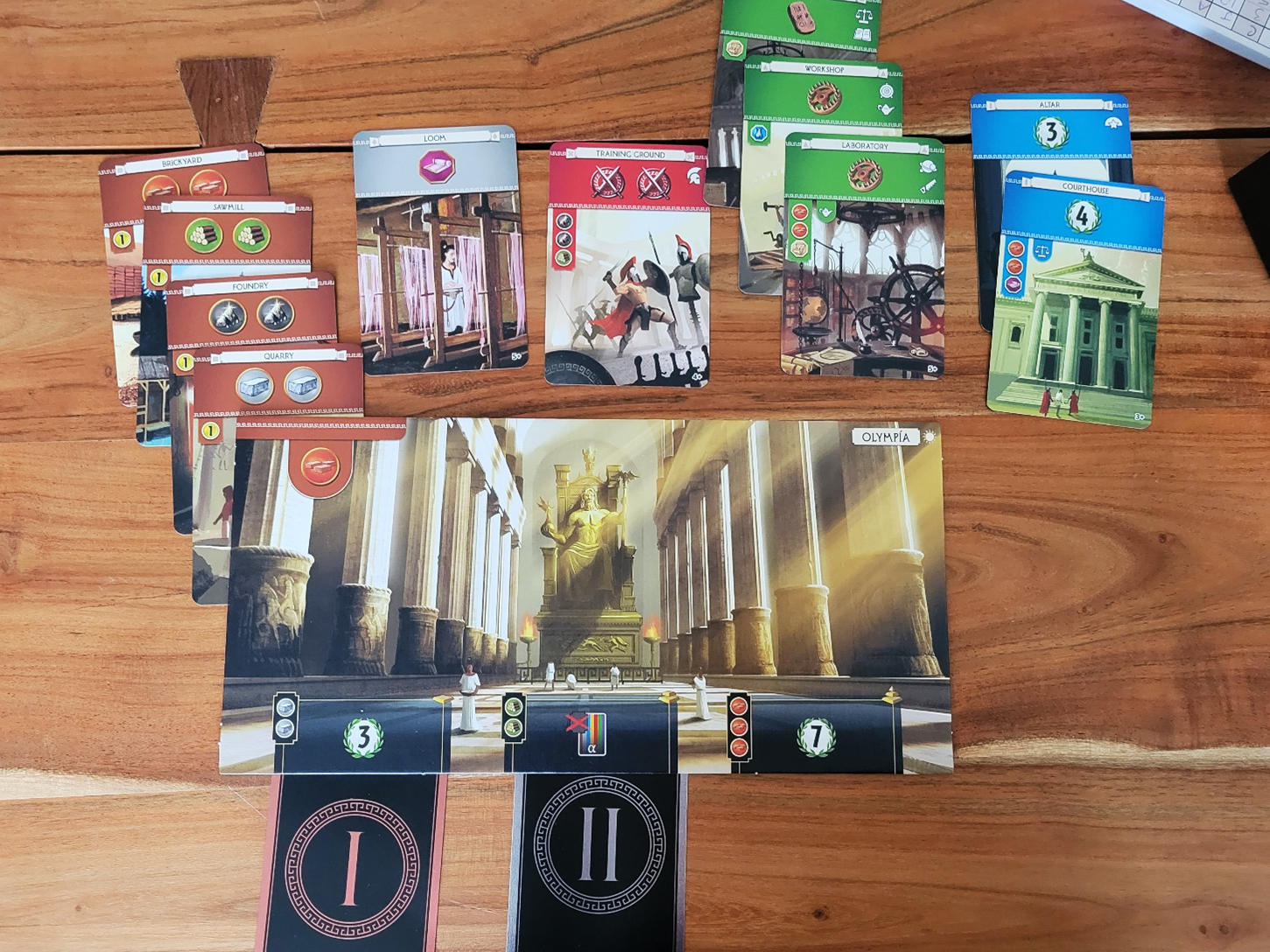
7 Wonders works better than you’d think!
Azul or Ticket to Ride are two more games I’d put in the “not worth it” category – because those games rely partially on outmaneuvering your opponent for the same goal or similar method of accruing points to win. Games that assign an edge to a player based on randomly assigned “bonus” goals, like in Castles, or games that allow each player to decide on their own path to Victory (and are more or less played with an open hand), like Agricola or 7 Wonders, work really well for this in my opinion. It’s a fun opportunity to try out different strategies for winning – and again, I think this is key. I’ll go into detail into what this can look like.
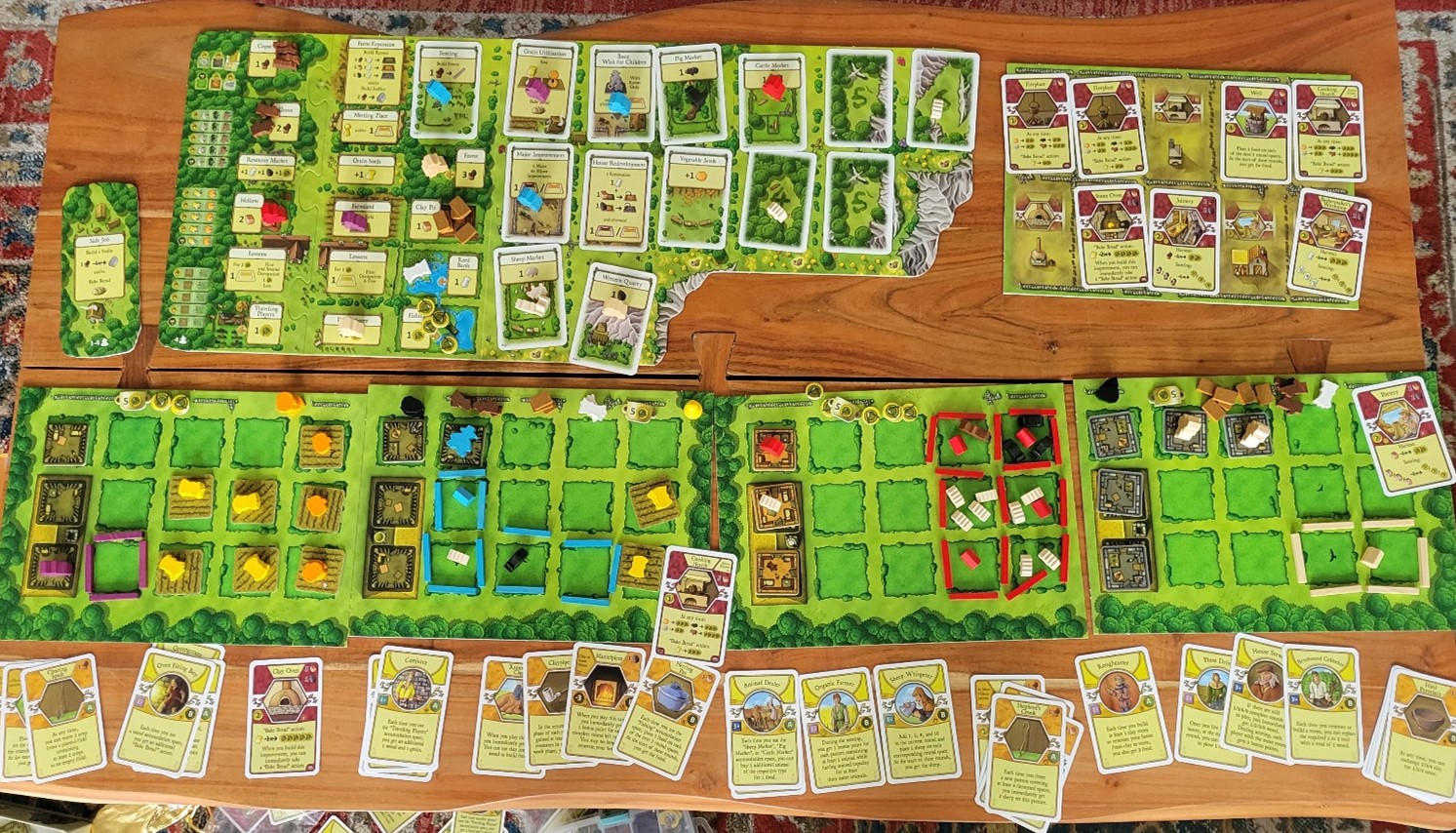
One perk of playing massive board games by yourself – you get to make all the elements readable to you
My favorite variation of Agricola to play – and the reason it remains my favorite board game – is all in the drafting of the Minor Improvements and Occupations cards. The base game does mostly rely on the same mechanics for victory – get as many family members as soon as possible, make sure they don’t starve, and try not to have an empty farm. Points are awarded for any number of other details, like how developed your house is or how many of a certain resource you have, but most experienced players follow the same basic sequence when playing.
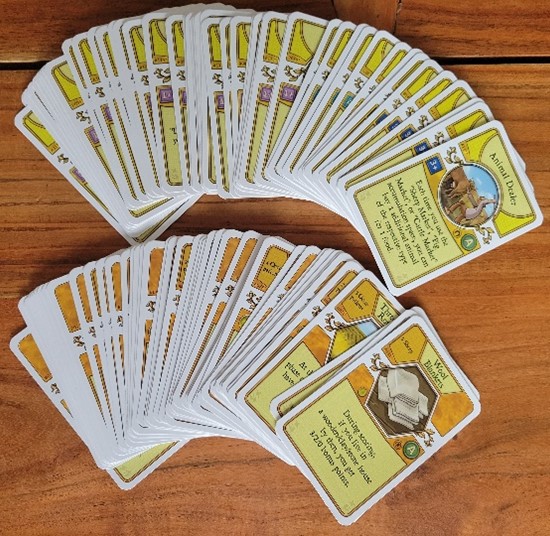
The game starts to get interesting with the introduction of Minor Improvements & Occupations, because these cards can give an edge to certain forms of food production or resource acquirement that are unavailable to the other players. This results in the possibility of a larger amount of victory points that can be gained by unorthodox means – especially since the effects of these cards can multiply upon themselves. This is where I start to have fun. I’ll usually set up a game against myself with the intention of playing out the different strategies. Sometimes I practice by doing a random card assignation to practice playing with the hand I’m dealt; sometimes I’ll assign certain cards to each “player” to see how effective each strategy is against the others. I don’t typically run into the issue of trying to block anyone else’s moves, I just go after my own objective when it’s that player’s move. The wide variety of cards available ensures that I won’t run out of variations anytime soon.
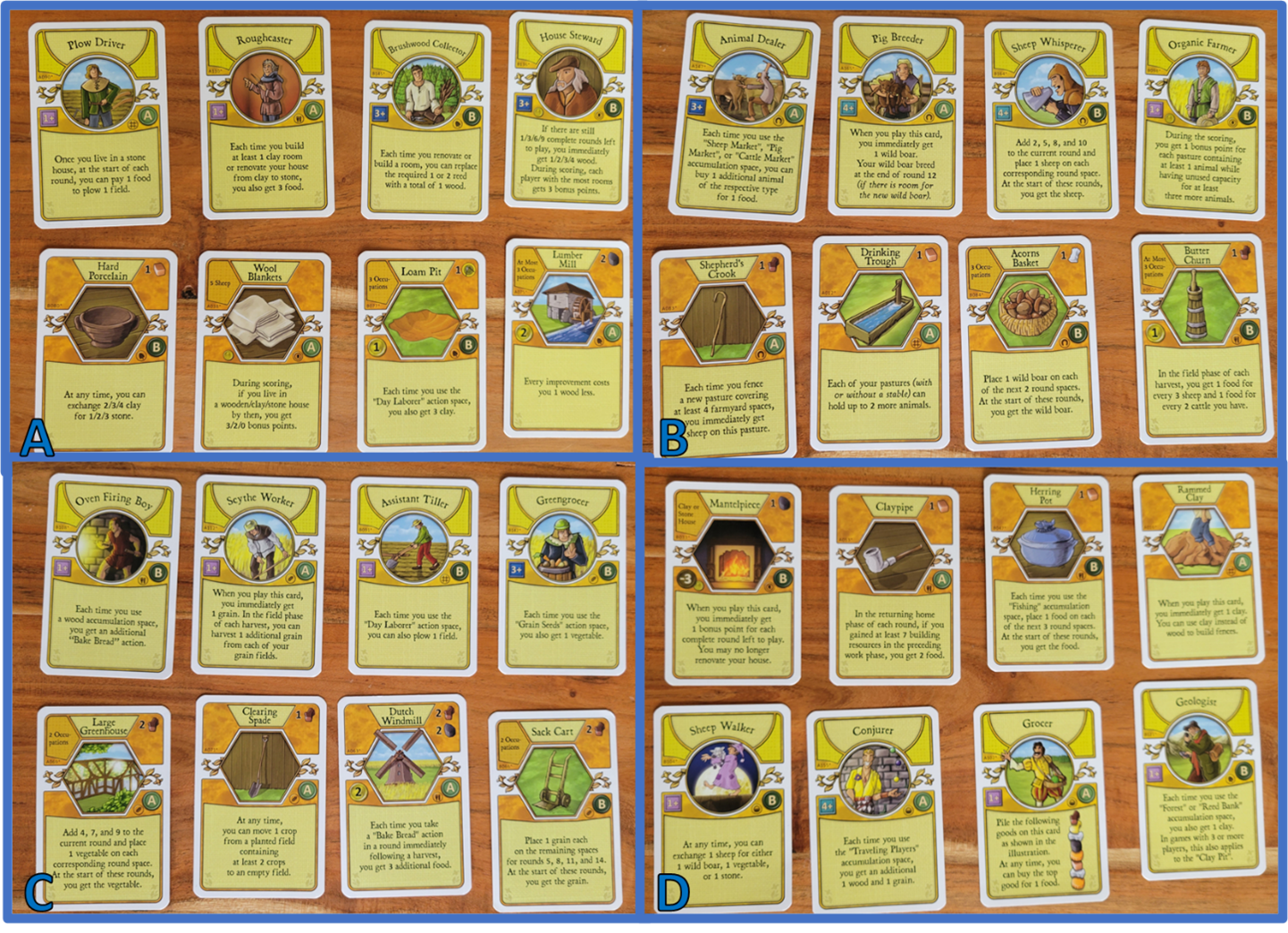
Example of four different strategies using Minor Improvements and Occupations – House Development (A), Animal Husbandry (B), Farming Crops (C), and Resource Accumulation (D)
A simpler example of this is Castles – again, each player is randomly dealt bonus cards at the beginning of the game, and more can be earned throughout the game by the completion of a “Utility” category of room. These cards are kept a secret until the final scoring. The primary way of sabotaging the other players is by the setting of the price of rooms one can purchase – this responsibility rotates among players each round. You can either ignore this aspect of the game altogether when playing against yourself or choose to price the rooms in the manner that most benefits the player you are currently embodying, given that a sharper player might be able to ascertain the goals of the players in the course of a normal game with other, real humans.
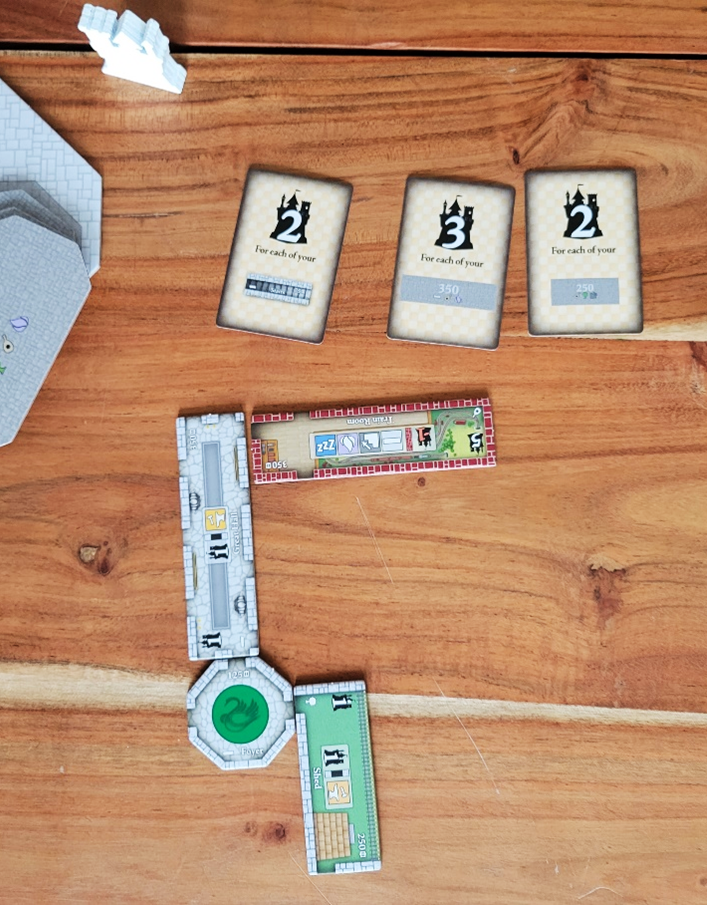
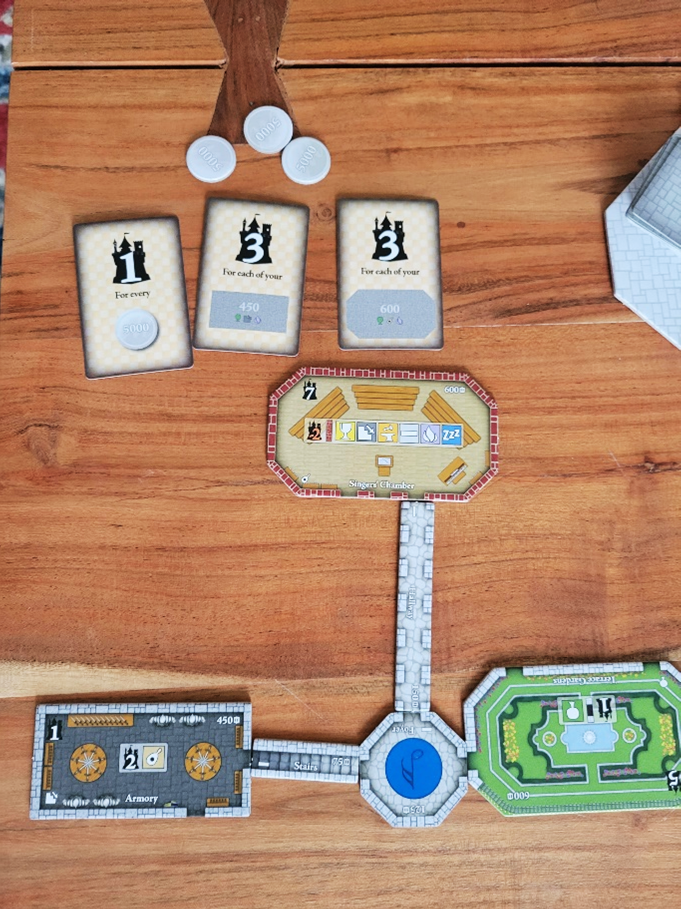
Different strategies lead to very different-looking castles in Castles
Is this method of play super nerdy? Yes. Is it a lot of work to set up and tear down Agricola all by lonesome? Also yes. Am I a better player for practicing different strategies in a controlled environment? I’m going to leave that one as a maybe.
Because while I do learn the technical components of the games I play against myself quite well, there is always an element of unpredictability that is lost The motivations of other players cannot be exactly replicated; not everyone will play a game the same way I do, and that’s okay. The point for me, after all, isn’t to become some unbeatable board game god, but to have fun when I play, be it with friends, or all by myself.
Comments
No comments yet! Be the first!